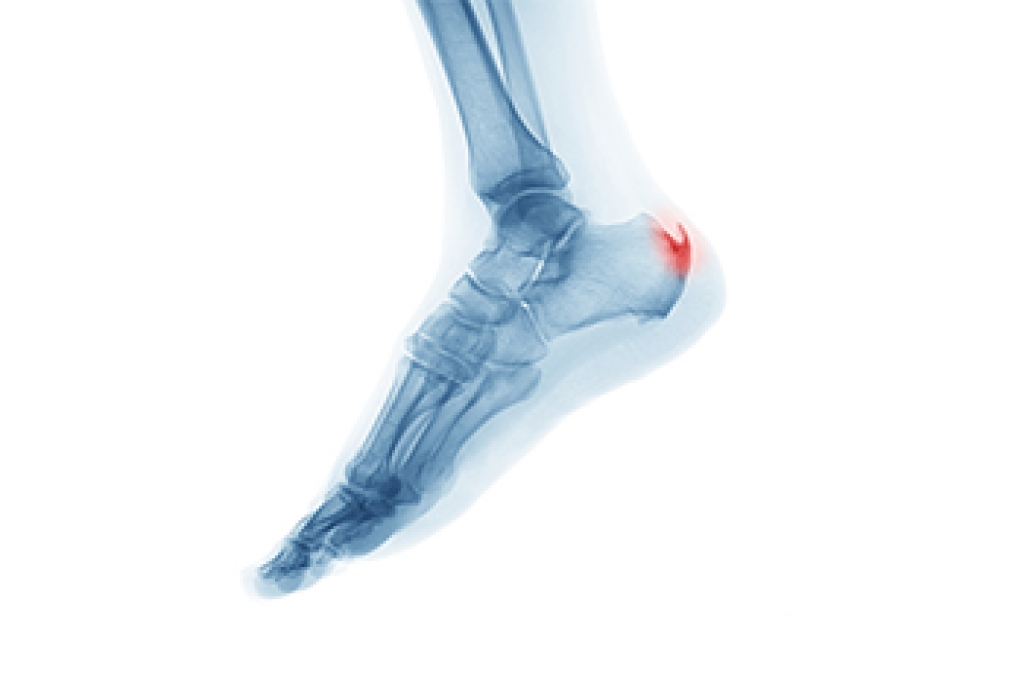
A heel spur is a calcium deposit that comes from excessive strain, friction, or pressure on the heel bone and can cause bony growths to develop under the heel or the sole of the foot. There are several things that can lead to these types of spurs including exercising, wearing shoes that do not fit well or wearing high heels, having flat feet or high arches, being overweight, and having arthritis. Having plantar fasciitis or another foot condition can also create heel spurs. Some heel spurs cause pain while others do not. If one has a heel spur, reducing friction on the heel is the first thing to tend to. Other conservative methods to resolve pain from a heel spur, include wearing shoe inserts, stretching exercises, and cortisone injections. These non-surgical treatments will help in most cases. If you suffer from heel pain and suspect you have a heel spur, it is suggested that you make an appointment with a chiropodist for recommended treatment.
Heel spurs are bony outgrowths from calcium deposits. They occur at the back of the heel bone or underneath the heel bone and usually form in response to chronic irritation of the Achilles tendon or plantar fascia. They are often asymptomatic, but if you are suffering from heel pain, please consult with one of the specialists from Thornhill Foot Clinic. Our chiropodists can help you maintain the health of your lower limbs and your mobility.
Symptoms of Heel Spurs
- Tenderness
- Heel pain
- Pain when walking
- No symptoms
Diagnosis
Since heel spurs are often asymptomatic, they are usually only diagnosed when they are found on the heels incidentally during an X-ray taken for another reason. Nevertheless, if you have heel pain, and particularly if you have plantar fasciitis or Achilles tendonitis, it may be worth it to see if you have heel spurs too.
Treatment
Unless they are causing symptoms, heel spurs typically don’t require any treatment. When they are symptomatic, treatments are typically conservative. They may include resting and icing the affected foot, taking anti-inflammatory medications, and wearing orthotics or supportive footwear, especially while exercising.
If you have any questions, please feel free to contact our office located in . We offer the newest diagnostic and treatment technologies for all your foot care needs.
